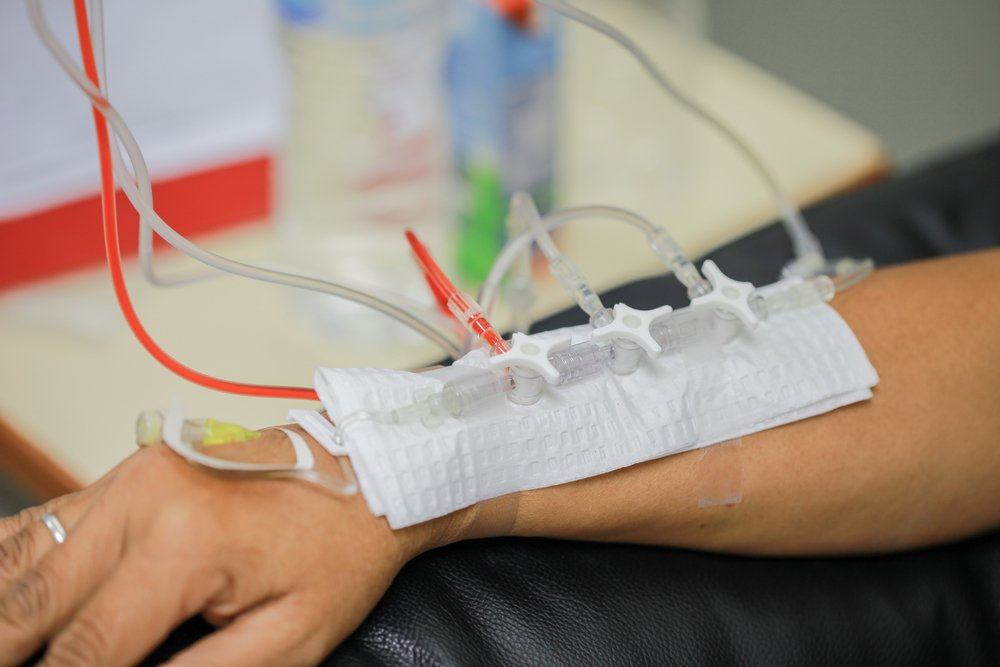Contents:
- Medical Video: What is Hepatitis C and Why Should You Care?
- How can hepatitis be transmitted?
- Tips to prevent hepatitis transmission while treating hepatitis patients
- 1. Avoid sharing personal items
- 2. Make sure you are vaccinated
- 3. Use a protector when cleaning the house
- 4. Cleanse with bleach
Medical Video: What is Hepatitis C and Why Should You Care?
Living together while caring for a hepatitis patient means you can get the virus if you don't know how to protect yourself. This is why you should learn and apply safety tips so you can stay healthy and take good care of hepatitis patients. See the guide to preventing hepatitis transmission to protect yourself, while still helping patients feel better.
How can hepatitis be transmitted?
There are five types of hepatitis, namely hepatitis A, B, C, D, and E. All of these types cause inflammation of the liver, but are spread in different ways. Viral hepatitis A, B and C are reported to have the largest number of cases in the world.
Hepatitis A basically does not result in chronic infection, but you can get infected with this type of hepatitis if you consume food or drinks contaminated with the hepatitis A. When you get hepatitis B, you will experience a mild illness that lasts only a few weeks, or can develop into chronic condition. In this case, you can be at risk for liver disease or even liver cancer. The method of transmission of the hepatitis B virus from one person to another is through blood, semen, and other infected body fluids. Meanwhile, hepatitis C usually develops from acute illness to chronic conditions. If you are infected with this virus, you can get liver cirrhosis and liver cancer. Exposure to infected blood is the most common method of transmission of hepatitis C.
Tips to prevent hepatitis transmission while treating hepatitis patients
If you have to treat a hepatitis patient, it is important for you to understand the types of viruses and also safety tips. You must pay attention to give them the best care but also protect yourself from the risk of transmission. Your doctor will help if you want to find out more about how to prevent transmission of hepatitis.
1. Avoid sharing personal items
Simple contacts such as shaking hands or hugging can not make you contract the virus. Blood and bodily fluids belonging to hepatitis patients cause the transmission of the virus. Hepatitis A and E can spread through saliva, while hepatitis B, C, and D can spread through blood and semen or vaginal fluids.
If your skin is scratched or damaged, you will be more susceptible to infection. To avoid these infections, you are strongly advised not to share personal items with hepatitis patients. By not using together items such as shavers, needles, toothbrushes, earrings, pins, pins, nail clippers, even sex toys will help you limit direct contact with the blood or body fluids of those infected.
2. Make sure you are vaccinated
Vaccination can prevent transmission of hepatitis A and B. There is strong evidence that routine use of vaccines can greatly help reduce the number of cases of hepatitis A and B recently reported. If you are treating a hepatitis patient, you must be vaccinated first.
3. Use a protector when cleaning the house
At any time you have to clean something that can be contaminated with body fluids such as diapers and dirty clothes or bed linen, you should use gloves, protective clothing and a face mask. It also helps you avoid injury from sharp objects such as needles.
4. Cleanse with bleach
The hepatitis B virus can live for 10 days on a dry surface, while the hepatitis C virus can live up to four days under these conditions. Therefore, it is recommended that you mix bleach into water to ensure that you clean the infected items effectively. Water and bleach can help you kill both types of viruses and prevent transmission of hepatitis in your environment.
Hello Health Group does not provide medical advice, diagnosis or treatment.












